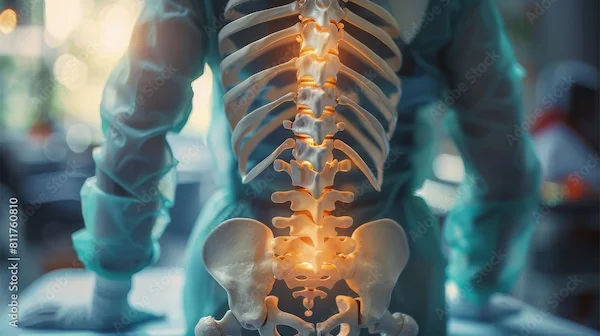How To Reduce Body Pain?
Explore effective ways to reduce body pain with natural remedies, lifestyle tips, exercises, and when to seek medical help for lasting relief.

Written by
Last updated on 13th Jan, 2026
Introduction
Body pain is a common issue that affects people of all ages. Whether it's due to stress, poor posture, an injury, or an underlying medical condition, persistent pain can disrupt daily life. The good news is that there are several ways to manage and reduce body pain effectively. In this article, we’ll explore the causes, symptoms, and practical tips to help you find relief.
Understanding Body Pain
Body pain can range from mild discomfort to severe, debilitating pain. It may be localised (affecting a specific area) or generalised (affecting multiple parts of the body). Common types of body pain include:
Muscle pain: Due to overuse, strain, or tension
Joint pain: Often linked to arthritis or inflammation
Back pain: From poor posture, injury, or spinal issues
Chronic pain: Long-term pain due to conditions like fibromyalgia
Common Causes of Body Pain
Some of the most common causes of body pain:
Physical Strain & Overuse: Lifting heavy objects, excessive exercise, or repetitive movements can lead to muscle soreness.
Poor Posture: Sitting or standing incorrectly for long periods can cause back, neck, and shoulder pain.
Stress & Tension: Emotional stress tightens muscles, leading to headaches and body aches.
Injuries: Sprains, fractures, or bruises can cause acute pain.
Medical Conditions: Arthritis, fibromyalgia, infections, or nerve disorders may contribute to chronic pain.
Lack of Movement: Sedentary lifestyles weaken muscles and joints, increasing pain sensitivity.
Symptoms to Watch For
While occasional body pain is normal, persistent or worsening pain may require medical attention. Seek help if you experience:
Severe pain that doesn’t improve with rest
Swelling, redness, or warmth in the painful area
Numbness or tingling
Pain after an injury or fall
Fever along with body aches (could indicate infection)
Effective Ways to Reduce Body Pain
Ways to reduce body pain:
1. Stay Active with Gentle Exercises
Movement helps reduce stiffness and improves blood circulation. Try:
Stretching: Helps relieve muscle tension.
Walking: A low-impact exercise that keeps joints flexible.
Yoga & Tai Chi: Enhances flexibility and relaxation.
Avoid high-intensity workouts if you're in pain, opt for gentle activities instead.
2. Apply Heat or Cold Therapy
Heat Therapy (warm baths, heating pads): Relaxes stiff muscles and improves blood flow.
Cold Therapy (ice packs): Reduces swelling and numbs acute pain (best for injuries).
3. Maintain Good Posture
Sit with your back straight and shoulders relaxed.
Use ergonomic chairs and adjust computer screens to eye level.
Avoid slouching or hunching over your phone.
4. Manage Stress & Relax
Stress worsens muscle tension. Try:
Deep breathing exercises
Meditation or mindfulness
Adequate sleep (7-9 hours)
5. Hydrate & Eat a Balanced Diet
Stay hydrated: Dehydration can cause muscle cramps.
Anti-inflammatory foods: Include turmeric, ginger, leafy greens, and omega-3-rich foods (fish, nuts).
Limit processed foods & sugar: They can increase inflammation.
6. Over-the-Counter Pain Relief
Paracetamol: For mild to moderate pain.
NSAIDs (Ibuprofen, Aspirin): Help with inflammation (consult a doctor before long-term use).
7. Massage & Physical Therapy
Regular massages ease muscle tension.
A physiotherapist can recommend exercises to strengthen weak areas.
8. Alternative Therapies
Acupuncture: May help relieve chronic pain.
Chiropractic care: Useful for spinal and joint pain.
When to See a Doctor?
If home remedies don’t help or if pain persists for weeks, consult a healthcare provider. Persistent pain could indicate an underlying condition that needs treatment.
Conclusion
Body pain can stem from various causes, including stress, overexertion, poor posture, or underlying health conditions. Thankfully, with the right combination of rest, gentle movement, hydration, and natural remedies, you can ease discomfort and support faster recovery. Regular exercise, a balanced diet, and proper sleep also play key roles in long-term pain management. If the pain persists or worsens, it’s important to consult a healthcare professional to identify the root cause and receive appropriate treatment. Taking proactive steps can help you feel better, move more freely, and improve your overall well-being.
Consult Top General Physician
Consult Top General Physician

Dr. Vivek D
General Physician
4 Years • MBBS
Bengaluru
PRESTIGE SHANTHINIKETAN - SOCIETY CLINIC, Bengaluru

Dr Syed Mateen Pasha
General Physician
2 Years • MBBS
Bengaluru
PRESTIGE SHANTHINIKETAN - SOCIETY CLINIC, Bengaluru

Dr Aakash Andgi
General Physician/ Internal Medicine Specialist
9 Years • MBBS MD
Bengaluru
Apollo Clinic, JP nagar, Bengaluru

Dr. Anand Ravi
General Physician
2 Years • MBBS
Bengaluru
PRESTIGE SHANTHINIKETAN - SOCIETY CLINIC, Bengaluru

Dr. Ashita Kuruvilla
General Physician/ Internal Medicine Specialist
7 Years • MBBS
East Midnapore
VIVEKANANDA SEBA SADAN, East Midnapore


